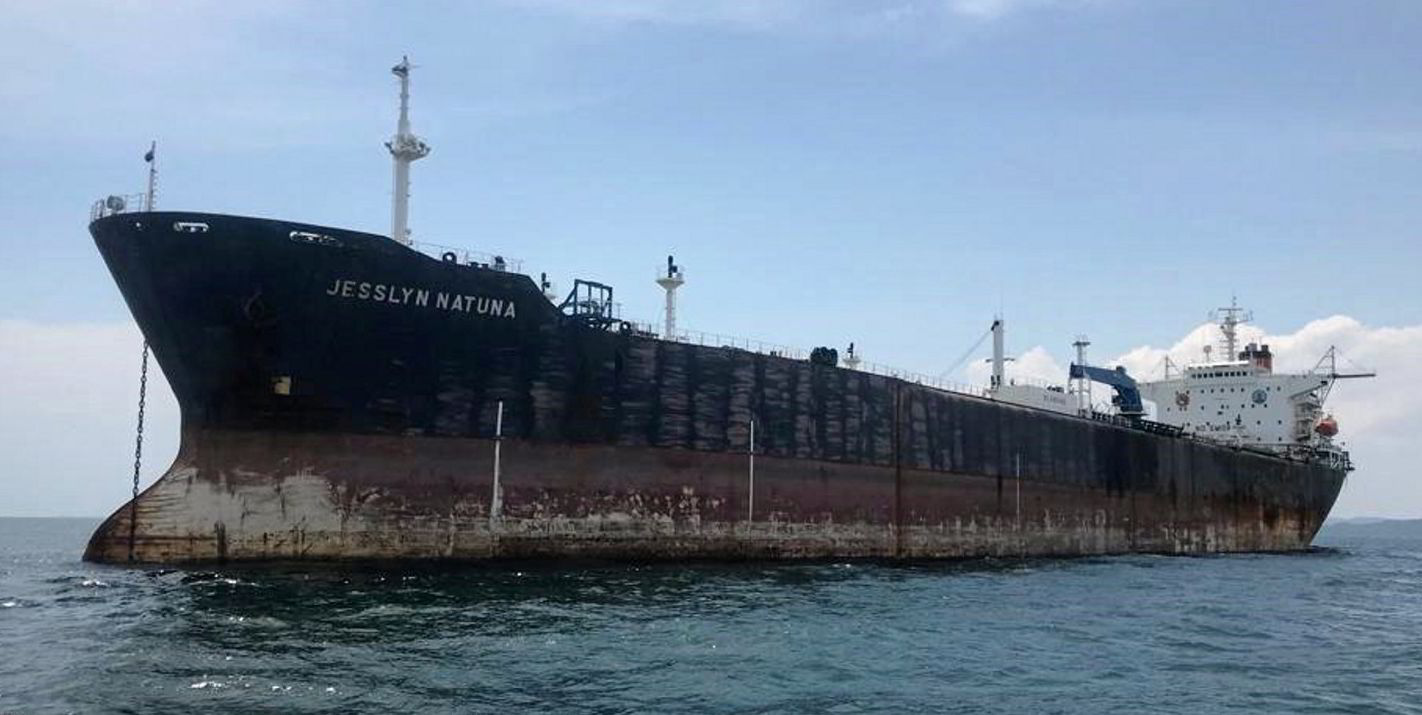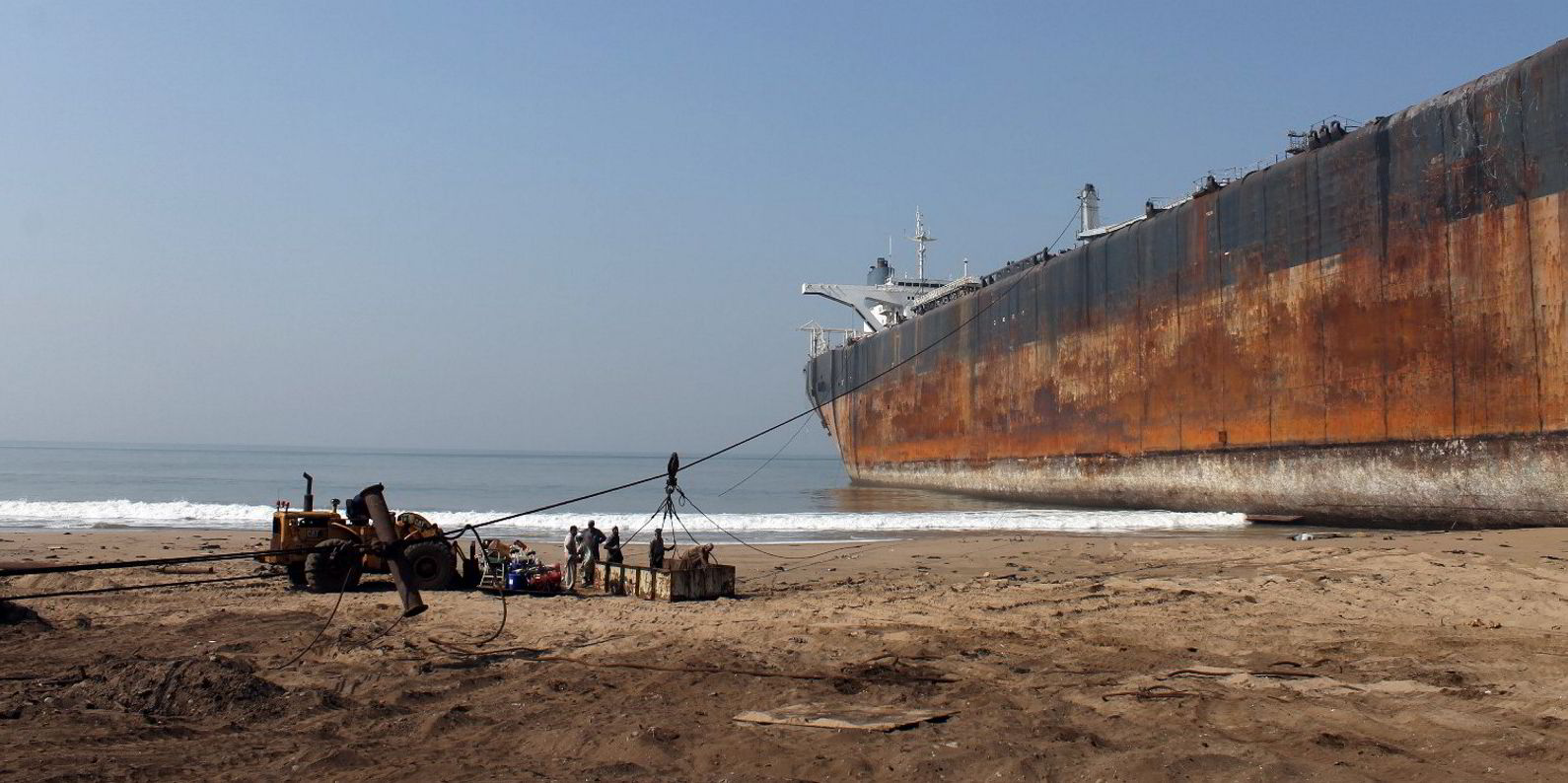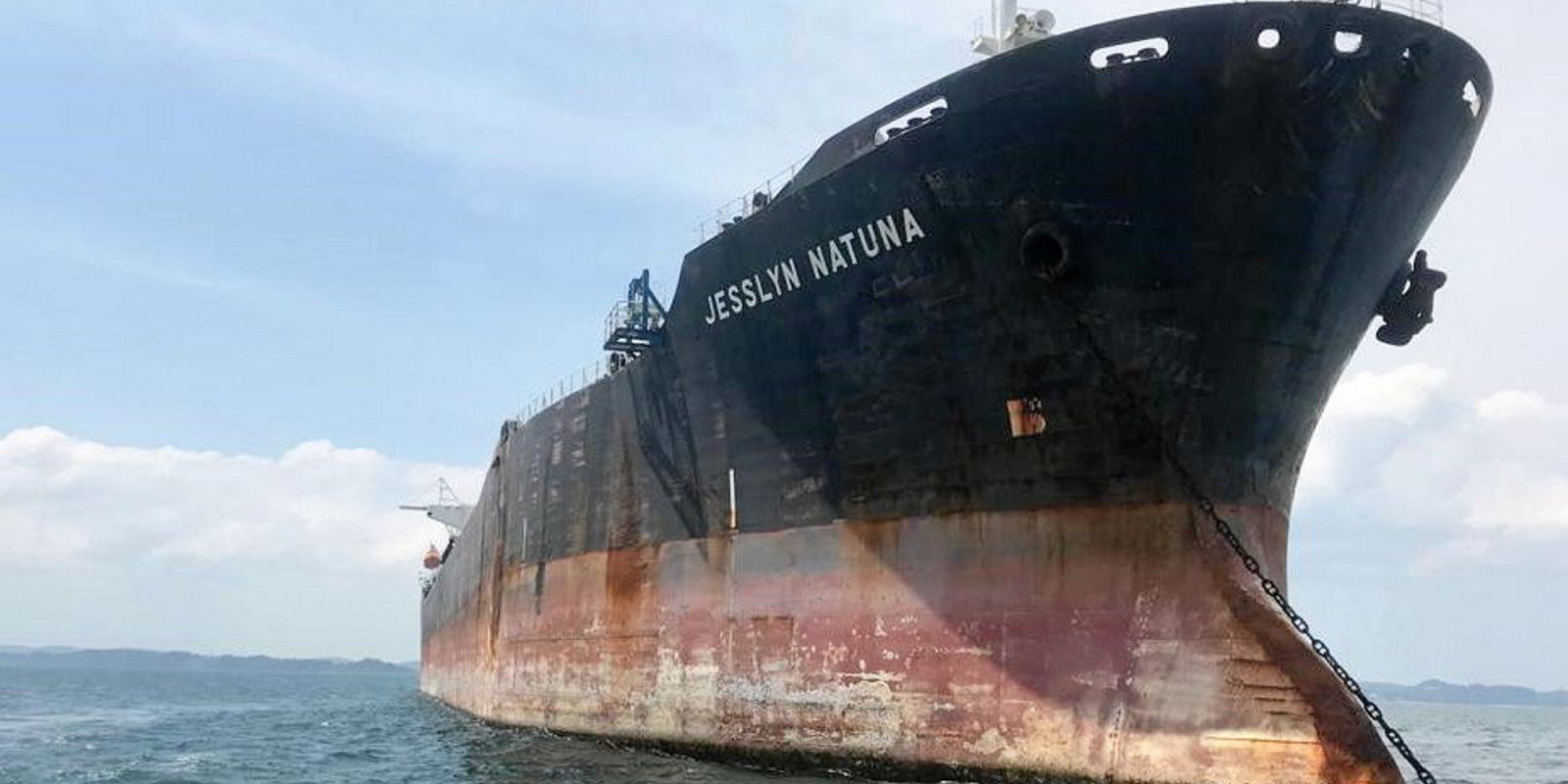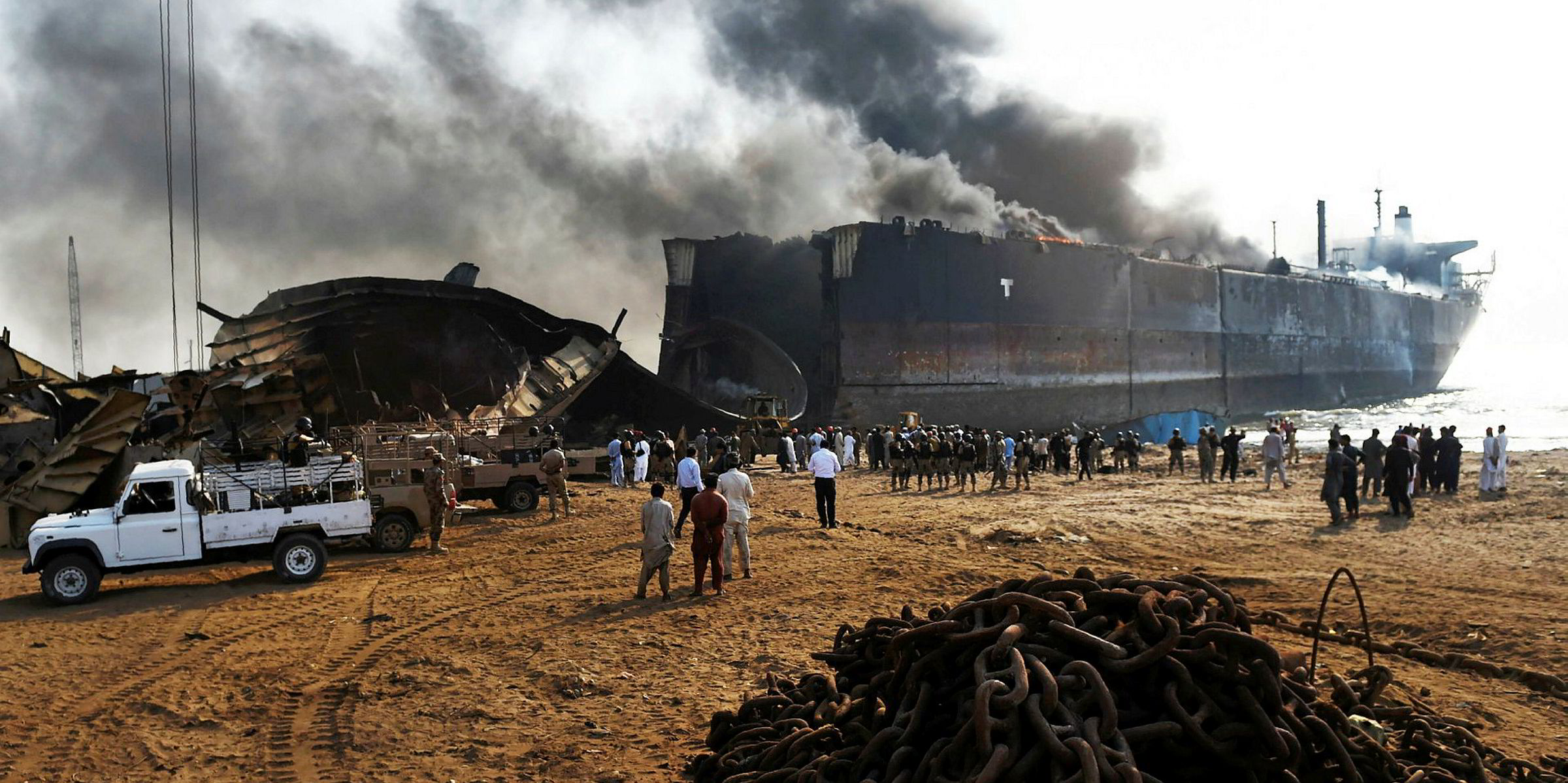Banned from Bangladesh and India, a storage tanker branded as toxic has ended its final voyage on the shipbreaker's beach at Gadani in Pakistan.
The arrival of the 60,500-dwt Radiant (built 1983) has incurred the wrath of government ministries in Islamabad who want to know how it happened when they had expressly forbidden the vessel's entry into Pakistan.
A high-level investigation has been launched into how approvals are granted by local authorities, and how a vessel that NGO Shipbreaking Platform had claimed to have 1,500 tonnes of slop oil and sludge with mercury levels of 395 mg per kg was allowed to be beached.
At the centre of the investigation is the Balochistan Environmental Protection Agency (EPA), which is responsible for authorising beachings and issuing cutting certificates.
One demolition cash buyer on the ground in Gadani described the situation as tense.
“Each and every lower level of official is being questioned by their seniors. This has gone up to central government level so it can't be swept under the carpet. Interpol and the Pakistani intelligence agencies are involved. Heads are going to roll,” he said.
Toxic journey

The Radiant was employed until 2018 as a floating storage and offloading tanker by Indonesia’s Global Niaga Persama under the name Jesslyn Natuna.
It was sold to cash buyer Dinesh Pandey via his company Somap in 2019, renamed J Nat and placed under the management of Mumbai-based Prayati Shipping, which specialises in scrap delivery voyages.
The J Nat departed Batam for Chattogram under tow of the Prayati-owned anchor handling tug S Cas (built 1985) in April 2020.
It never arrived at the Bangladeshi port. The Bangladesh government banned the ship from the country’s waters after the NGO Shipbreaking platform alerted them about the hazardous substances on board.
What happened to the ship over the next few months remains a mystery, but by September it was reported to be heading for Alang, where Indian authorities also issued a beaching ban.
The old tanker was left at anchor off Mumbai, renamed Radiant.
Last November, Dinesh Panday was arrested for money laundering. Creditors of Somap took out injunctions against the company’s assets after he was jailed.
Scrap industry sources told TradeWinds the Radiant was sold in March to a Dubai-based cash buyer using a Pakistani agent. Some sources claimed the vessel's Singapore-based mortgagee holder sold it. Others claimed that it was offloaded by otherinterests.
The Radiant was towed out of Mumbai by the S Cas and arrived off Gadani beach on 30 April, demolition markets sources said. It was beached two weeks later at Dewan Ship Breakers' site.
Some reports have indicated that the name Cherish had been painted on the vessel, although shipping databases still list it as the Radiant.
The toxic oil and sludge was still on board and yard workers were deployed to remove it in drums for resale, according to Pakistani media.
Ship-recycling sources claimed the ship was sold for $80 per ldt below market value.
Blame game

Documents shown to TradeWinds indicated Interpol notified Interpol Pakistan and the country’s Federal Investigation Agency of the intended arrival of the Radiant on 22 April.
They, in turn, notified government ministries. The Ministry of Climate Change sent a ban notice to the Pakistan Shipbreakers Association, which circulated it among its members on 15 May, around the same time the ship was beached.
On a provincial government level officials appear to be distancing themselves from any involvement.
On Thursday, for example, the Balochistan provincial government announced it had launched its own investigation.
Imran Saeed Kakar, deputy director of Environment Department of Balochistan, told local media that his organisation gave no permission allowing the beaching of ship.
The Balochistan EPA responded by sealing Dewan Ship Breakers’ site. Samples of the oil and sludge have been sent for testing. If mercury levels are found to be above permissible levels, the yard could be permanently closed down and fines levied.
Dewan Ship Breakers owner Dewan Rizwan Farooqui was not available for comment, according to the person who answered his mobile phone.
Other Pakistani ship-recycling sources said they hoped the heavy scrutiny on the Radiant would lead to significant and permanent improvements, rather than being not just be forgotten a few months down the line.







